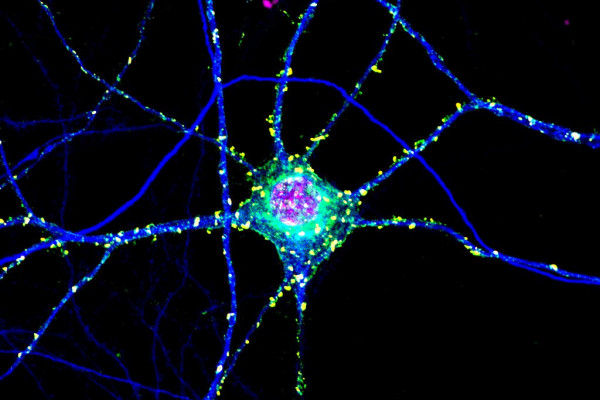Researchers have used stem cells to make neural implants more refined and with less scar...
Interviews with Scientists
Interviews about medicine, science, technology and engineering with scientists and researchers internationally...
2014 has been declared to be the Year of Code, but why has coding, and getting kids into computer science become so...
We visit a bunch of fledgling coders at an after school coding club called 'The Park Street Hacker Elite'
This week a team of astronomers announced that they had detected evidence of primordial gravitational waves. We met one...
We uncover decision making in OCD, the teenage brain and how Kings Cross relates to our thinking networks...
Professor Trevor Robbins, has just been announced as one of the winners of the Grete Lundbeck Brain Prize for 2014.
Could genetic tests help diagnose people who are at risk of developing psychiatric conditions and catch them before...
Harriet went to one of the biggests events at the Cambridge Science Festival, run by Chaos, to check out some of...
Where you live and work, and how many take-away restaurants are nearby, can affect your waste-line as well as your...
Sharing a name with the cute but havoc-wreaking creatures in the classic 80s film, Gremlin was first discovered in frog...
What can be done to reduce the risk of flood damage in future?
What can cities do to reduce the risk of flooding? Professor Nigel Wright, from Leeds University, explains the Blue-...
Jenny Mant, from the River Restoration Centre, explains how we manage river levels and how we can stop rivers from...
Flood-victim Sheila Abrams, who lives in Debden, Cambridgeshire, recounts her experience of being flooded out...
How was a marsh turned into farmland centuries ago?
Is the extreme weather of recent years a consequence of climate change? Nobel prize winner Don Wuebbles argues that it...
Gene therapy can be used to modify the immune cells of patients with HIV, to make them much harder for the virus...
This week a 13-year-old British schoolboy has become the world’s youngest person to carry out nuclear fusion...
Professor Steve Jackson explains how research into DNA damage and repair is leading to new treatments for cancer.
It’s not just things in our environment that can damage our DNA - the damage can come from within too, as Prof Dan...
Orphan genes appear and disappear quite quickly in Drosophila, leaving the total number of genes roughly constant...
Bacteria employ a sophisticated method to ensure that they swim in a particular direction.
Chaperones are proteins that help other proteins to fold properly, and being flexible makes chaperones better at this...
